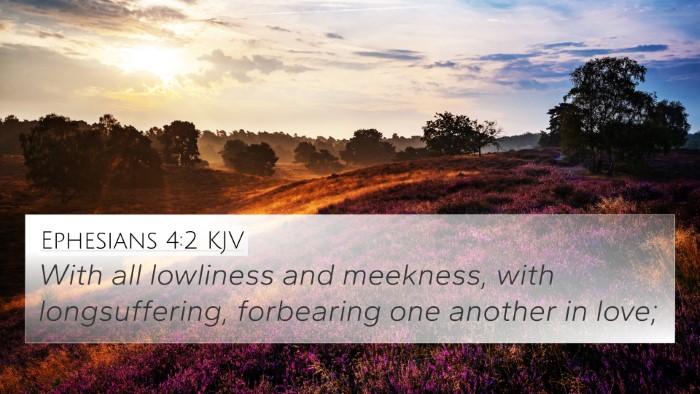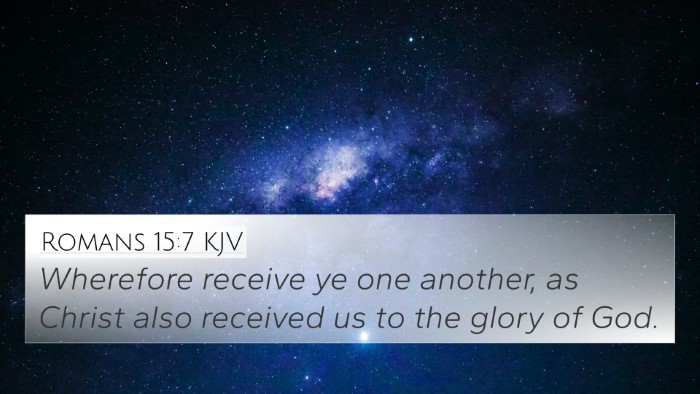Understanding Colossians 3:13
Colossians 3:13 reads: "Bear with each other and forgive one another if any of you has a grievance against someone. Forgive as the Lord forgave you." This verse calls believers to practice forgiveness and patience within the Christian community.
Meaning of Colossians 3:13
This scripture emphasizes the importance of forgiveness in the life of a believer. As elaborated in various public domain commentaries, it serves not only as a directive but also as a reminder of the grace extended to us by Christ.
Forgiveness as a Central Christian Value
Matthew Henry explains that forgiveness is essential for maintaining harmony in the community of believers. The verse implores Christians to bear with one another, recognizing that everyone is flawed and prone to grievances.
Albert Barnes expands on this by interpreting "bear with each other" as a call for patience and understanding, especially when faced with offenses. He suggests that just as God forgives us our sins, we are duty-bound to forgive others.
Adam Clarke points to the necessity of reconciliation within the church, stating that forgiveness heals relationships and fosters a spirit of unity. The phrase “Forgive as the Lord forgave you” serves as a profound model for how to forgive, invoking the divine standard of grace and mercy.
Key Insights from Commentaries
- Importance of Forgiveness: Forgiveness should be proactive, not just a reaction to others’ offenses.
- Reflection of God's Love: Our ability to forgive mirrors God's forgiveness towards us.
- Community Harmony: Emphasizes the need for unity and peace within the church.
- Divine Example: Christ's teachings and actions exemplify the standard for our forgiveness.
Bible Verse Cross-References
Colossians 3:13 also connects thematically with several other scriptures, enhancing its meaning through scriptural cross-referencing:
- Matthew 6:14-15: "For if you forgive other people when they sin against you, your heavenly Father will also forgive you." This verse illustrates the reciprocal nature of forgiveness.
- Ephesians 4:32: "Be kind and compassionate to one another, forgiving each other, just as in Christ God forgave you." Another directive emphasizing mutual forgiveness akin to that of Christ.
- Luke 6:37: "Do not judge, and you will not be judged. Do not condemn, and you will not be condemned. Forgive, and you will be forgiven." Here, Jesus encapsulates the essence of forgiveness, establishing its role in our relationships.
- Romans 12:10: "Be devoted to one another in love. Honor one another above yourselves." This verse underlines the importance of selflessness in relationships, which is the foundation for forgiveness.
- 1 Peter 4:8: "Above all, love each other deeply, because love covers over a multitude of sins." Highlighting that love is integral to the practice of forgiveness.
- Matthew 18:21-22: A discussion on how often one should forgive, demonstrating the boundless nature of forgiveness expected from believers.
- Galatians 6:1: "Brothers and sisters, if someone is caught in a sin, you who live by the Spirit should restore that person gently." This emphasizes the church's role in restoring and forgiving each other.
Applying the Verse to Daily Life
To apply Colossians 3:13 in life, believers can:
- Practice Daily Forgiveness: Make it a habit to forgive small grievances before they escalate.
- Reflect on God's Forgiveness: Regularly meditate on the grace you have received through Christ as motivation to extend forgiveness.
- Seek Reconciliation: When conflict arises, take the initiative to reconcile and heal relationships.
Tools for Bible Cross-Referencing
Understanding cross-references can deepen study and comprehension. Using tools like a Bible concordance and Bible cross-reference guide can help researchers trace thematic connections between verses. A cross-reference Bible study method is beneficial in identifying verses that resonate with themes such as forgiveness, grace, and community.
Identifying Connections Between Bible Verses
Through comparative Bible verse analysis, one can effectively see how key themes like forgiveness and love are articulated in various scriptures. This strengthens the theological foundation of practices such as communal worship and personal conduct.
Conclusion
Colossians 3:13 serves a critical role in not only instructing believers on the necessity of forgiveness but also linking this imperative to the overarching narrative of grace found throughout the Scriptures. By leveraging tools for Bible cross-referencing and recognizing connections between scripture, believers can gain richer insights into their faith, fostering a culture of forgiveness and love within their communities.
Forgiving others as the Lord has forgiven us is foundational to Christianity, and recognizing these cross-references can enhance one’s understanding and application of this profound directive.


























